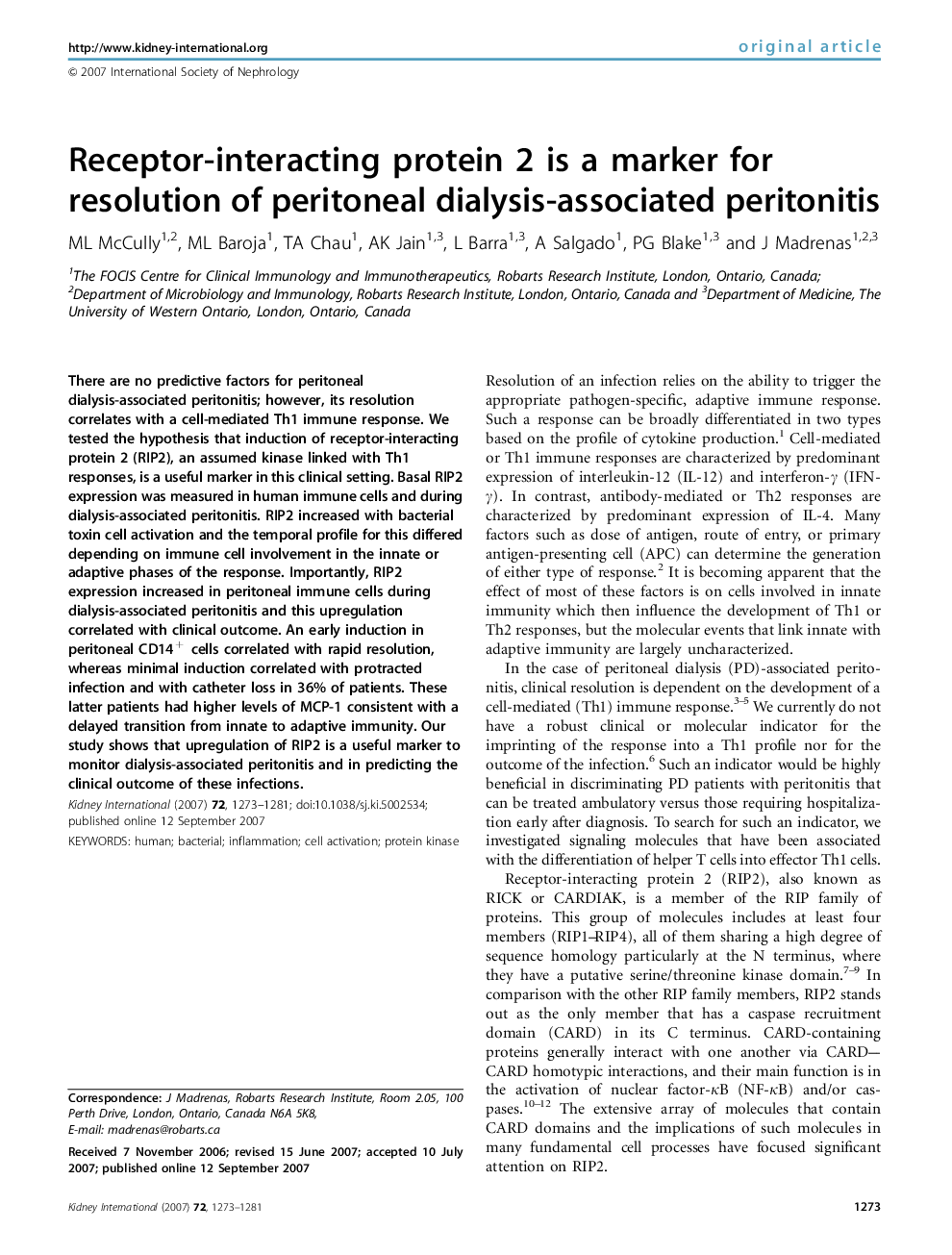| Article ID | Journal | Published Year | Pages | File Type |
|---|---|---|---|---|
| 3886187 | Kidney International | 2007 | 9 Pages |
There are no predictive factors for peritoneal dialysis-associated peritonitis; however, its resolution correlates with a cell-mediated Th1 immune response. We tested the hypothesis that induction of receptor-interacting protein 2 (RIP2), an assumed kinase linked with Th1 responses, is a useful marker in this clinical setting. Basal RIP2 expression was measured in human immune cells and during dialysis-associated peritonitis. RIP2 increased with bacterial toxin cell activation and the temporal profile for this differed depending on immune cell involvement in the innate or adaptive phases of the response. Importantly, RIP2 expression increased in peritoneal immune cells during dialysis-associated peritonitis and this upregulation correlated with clinical outcome. An early induction in peritoneal CD14+ cells correlated with rapid resolution, whereas minimal induction correlated with protracted infection and with catheter loss in 36% of patients. These latter patients had higher levels of MCP-1 consistent with a delayed transition from innate to adaptive immunity. Our study shows that upregulation of RIP2 is a useful marker to monitor dialysis-associated peritonitis and in predicting the clinical outcome of these infections.
